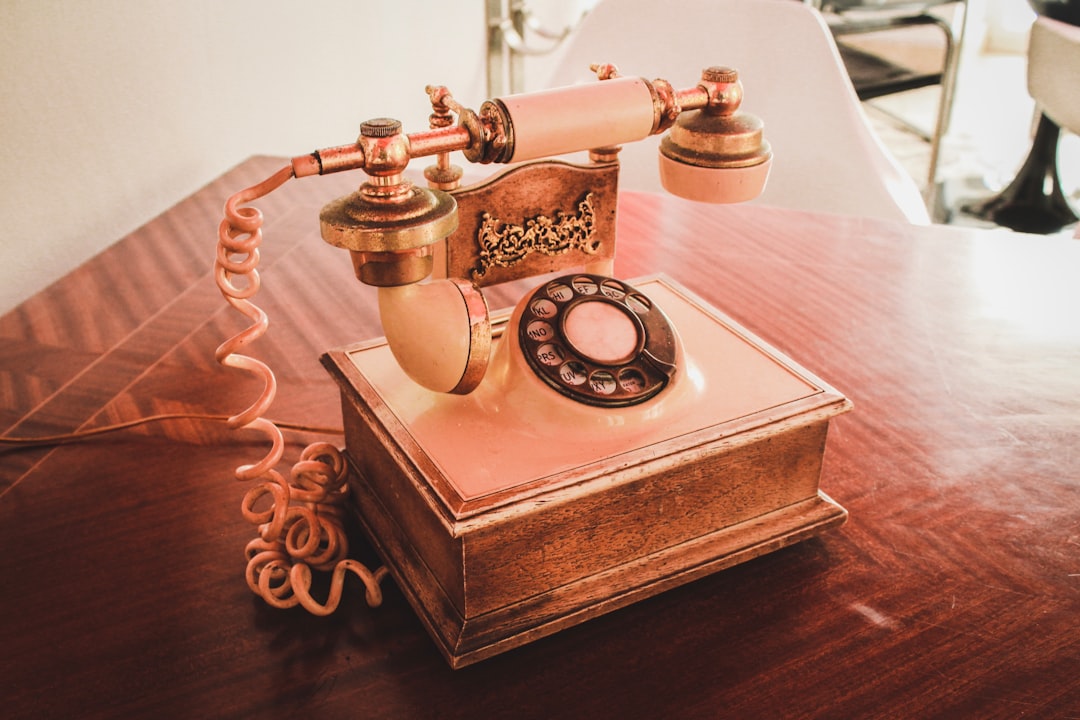Rhode Island's Do Not Call Law protects residents from unwanted telemarketing calls by allowing them to register on the "Do Not Call" list. While this blocks most commercial calls, exceptions exist for non-profit organizations and calls with explicit consent. Residents can consult Do Not Call lawyers or attorneys in Rhode Island for legal assistance against robocall law firms, protecting their privacy rights and navigating regulations. Engaging these specialists ensures compliance, minimizes unwanted calls, and offers protection from persistent violators. Keywords: Do Not Call Lawyer Rhode Island, Do Not Call attorneys Rhode Island, etc.
- Understanding Rhode Island's Do Not Call Laws
- The Impact of Unwanted Robocalls
- Legal Protections for Consumers in RI
- How to Stop Autodialer Calls Effectively
- Finding a Specialist Lawyer for Your Case
Understanding Rhode Island's Do Not Call Laws
In Rhode Island, the Do Not Call Law is designed to protect residents from unwanted telemarketing calls, including those from autodialers. This law, enforced by the Rhode Island Division of Business Regulation, allows consumers to register their phone numbers on a “Do Not Call” list, effectively blocking most commercial calls. However, it’s crucial to understand that this law has exceptions; calls placed with the express written consent of the recipient or calls from certain non-profit organizations are not restricted.
Residents who wish to prevent robocalls and autodialer interactions can register their numbers through the state’s official Do Not Call list. Once registered, it becomes illegal for any company or individual to make automated telemarketing calls to that number. Those who violate this law may face penalties, with each incident potentially resulting in fines. For assistance navigating these laws, many residents turn to specialized Do Not Call lawyers and attorneys in Rhode Island, who can guide them through the process of registering, understanding their rights, and taking legal action against persistent violators, including robocall law firms.
The Impact of Unwanted Robocalls
Unwanted robocalls have become a pervasive and frustrating issue for many residents in Rhode Island. These automated phone calls, often promoting products or services, can be particularly intrusive when they are not welcomed or requested by the caller. The constant barrage of robocalls can lead to significant disruptions in daily life, causing stress and even impacting mental health for some individuals. Many people find themselves on the receiving end of these unwanted messages multiple times a day, making it challenging to manage personal communication effectively.
In response to this growing concern, many Rhode Island residents are seeking legal assistance from experienced Do Not Call lawyers or attorneys. These professionals specialize in navigating the complex regulations surrounding robocalls and can provide guidance on how to protect individuals’ privacy rights. By understanding the laws and working with qualified legal representatives, Rhode Island citizens can take proactive measures to challenge and stop unauthorized autodialer use, ensuring a quieter and more peaceful communication environment.
Legal Protections for Consumers in RI
In Rhode Island, consumers are protected from unwanted autodialed calls, also known as robocalls, thanks to comprehensive Do Not Call laws. These regulations provide a robust framework to safeguard residents’ privacy and peace of mind. If you’ve received unsolicited automated telephone marketing calls, you have legal recourse. The state’s Do Not Call Law prohibits companies from making such calls unless the caller has obtained prior express written consent from the recipient. This means that businesses must secure explicit permission before using automatic dialing systems or face potential legal action.
For those who wish to assert their rights, consulting a Do Not Call Lawyer Rhode Island or Do Not Call Attorney Rhode Island is advisable. Legal professionals specializing in this area can guide consumers on how to navigate these protections and take necessary steps if their rights are violated. Moreover, they can represent clients in disputes against robocall law firms Rhode Island, ensuring that businesses adhere to the state’s regulations and respect residents’ Do Not Call preferences.
How to Stop Autodialer Calls Effectively
If you’re tired of receiving unwanted autodialer calls, knowing how to stop them effectively is crucial. The first step is to register your number with the National Do Not Call Registry. This federal list prevents telemarketers from calling your number, but it doesn’t always block robocalls as they often use automated systems that can bypass these restrictions.
Engaging a Do Not Call Lawyer Rhode Island or consulting with a lawyer for robocall Rhode Island is another effective strategy. These legal professionals can guide you on the best course of action, which may include blocking numbers through your phone settings, using call-blocking apps, or taking legal measures against persistent violators. Additionally, considering a Do Not Call attorney Rhode Island or consulting with a Do Not Call law firm Rhode Island specializing in robocall laws can help ensure that your rights are protected and unwanted calls are minimized.
Finding a Specialist Lawyer for Your Case
When navigating the complexities of challenging autodialer use without explicit consent in Rhode Island, it’s imperative to enlist the expertise of a specialist lawyer. These legal professionals are well-versed in the state’s do-not-call laws and possess the acumen to navigate the nuances of robocall regulations. They can help you understand your rights and formulate a robust strategy to stop unwanted autodialed calls.
Hiring a local Do Not Call attorney or law firm in Rhode Island ensures that your case benefits from deep knowledge of regional legal landscapes. These specialists can represent you effectively, whether it’s negotiating with offending parties or litigating against violators. Their expertise extends to both state and federal regulations, ensuring comprehensive protection from intrusive robocalls.






